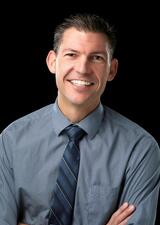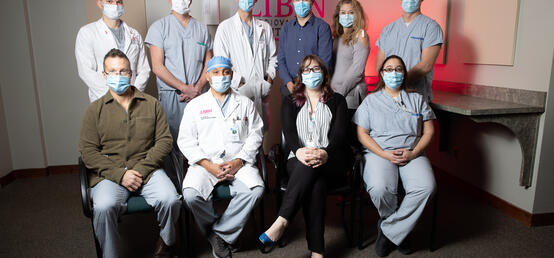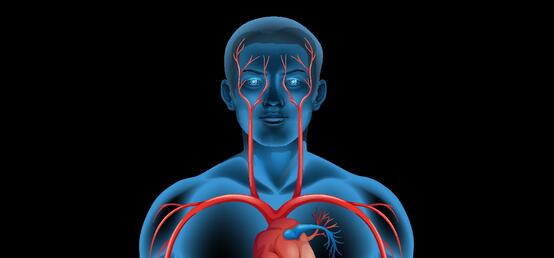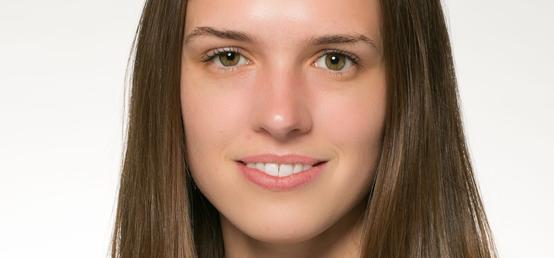What is Aortic Surgery?
The aorta, the body’s largest blood vessel, presents complex surgical challenges. This is where the nationally recognized Calgary Aortic Program (CAP) shines. Made up of cardiac and vascular surgeons, along with interventional radiologists and cardiologists, CAP specializes in aortic arch, thoracoabdominal aorta surgeries and endovascular procedures. The team offers the highest-quality aortic surgery and a comprehensive range of aortic surgical procedures.
Diseases of the Aorta
CAP provides assessment, diagnosis and treatment to patients living with aortic conditions including:
- Acute Aortic Dissection
- Chronic Aortic Dissection
- Aortic Arch Aneurysm
- Thoracic Aortic Aneurysm
- Thoracoabdominal Aortic Aneurysm
- Penetrating Aortic Ulcer, Genetic diseases impacting the aorta including Marfan syndrome, Ehlers-Danlos syndrome, Loeys-Dietz syndrome, Familial Thoracic Aortic Aneurysm and Dissection, Turner syndrome, and other heritable congenital aortopathies
Treating Aortic Disease

The aorta has many anatomic sections such as the ascending aorta, aortic arch, descending thoracic aorta, perivisceral aorta and infrarenal abdominal aorta. Specialists who treat the aorta may vary depending on the section of the aorta that is involved.
The Calgary Aortic Program integrates the care of all of these specialists, ensuring the aortic disease being treated is being assessed and managed by the most qualified team possible.

The Calgary Aortic Program is made up of cardiac and vascular surgeons, along with interventional radiologists and cardiologists. The team offers the highest-quality aortic surgery and a comprehensive range of aortic surgical procedures.
Meet the Team

Dr. Scott McClure, Co-lead
Dr. Scott McClure is a clinical associate professor in the Department of Cardiac Sciences at the University of Calgary. He is a cardiac surgeon who specializes in complex aortic surgery. His clinical research interests include clinical outcome studies and health policy initiatives in aortic disease management.

Dr. Randy Moore, Co-lead
Dr. Randy Moore is a vascular surgeon and a member and past research chair of the Canadian Society for Vascular Surgery. He is chief of the Division of Vascular Surgery for the Calgary Zone. His research interests are in complex aortic aneurysm repair, vascular hemodynamics and vascular imaging.

Dr. Michelle Keir, Co-lead
Dr. Michelle Keir is a cardiologist specializing in adult congenital disease and echocardiography. She is a clinical assistant professor in the Department of Cardiac Sciences at the University of Calgary and co-leads the Calgary Aortic Program. Her research interests include complex adult congenital heart disease, aortopathy, cardiac disorders of pregnancy, mixed methods and health systems research.

Dr. Eric Herget, Co-lead
Dr. Eric Herget is a radiologist and clinical assistant professor in the Department of Radiology at the University of Calgary. He co-leads the Calgary Aortic Program.
Dr. Vaibhav Patel
Dr. Vaibhav Patel is a basic research scientist at the University of Calgary in the Department of Physiology and Pharmacology. His research interests lie in the role of intercellular communications in cardiac and vascular disease.

Dr. Kenton Rommens
Dr. Kenton Rommens is a vascular surgeon and clinical assistant professor in the Dept. of Surgery at the University of Calgary. He specializes in open thoracoabdominal and aortic arch surgery and endovascular repair of the aortic arch.

Dr. Holly Smith
Dr. Holly Smith is a cardiac surgeon and clinical assistant professor in the Dept. of Cardiac Sciences at the University of Calgary. She specializes in aortic valve replacement, aortic reconstruction and minimally invasive procedures.

Dr. Andrew Braun
Dr. Andrew Braun is a basic science researcher and professor in the Dept. of Physiology & Pharmacology at the University of Calgary. His recent studies investigate how certain K+ selective ion channels in vascular smooth muscle and endothelium contribute to regulation of arterial diameter, tissue blood flow and peripheral blood pressure. He has found novel strategies to enhance the activity of these K+ channels, which can improve cardiovascular performance in rodent models exhibiting type 2 diabetes, atherosclerosis and aging.
Latest News
Article
UCalgary team tackles abdominal aortic aneurysms — a condition affecting 20,000 Canadians
Researchers develop software to help determine timing of surgery
Article
Aortic specialist joins Calgary’s surgical team
Dr. Holly Smith brings cutting-edge cardiac surgery techniques

Information for Patients
The Complex Aortic Clinic provides assessment, diagnosis, treatment and long-term care to patients living with aortic conditions including thoracoabdominal aortic aneurysm, ascending and aortic arch aneurysm and inherited/congenital aortopathy by a transdisciplinary team.
What to Bring to your appointment
- Photo ID
- Health Care Card
- List of Medications
- Support Person
- Questions for your physicians
Aortic surgery is a significant life event affecting both you and your family. Your surgical approach depends on the nature of your condition. If a minimally invasive endovascular option is suitable, your doctor will discuss it during your appointment.
Your surgery may take place at either the Foothills Medical Centre or Peter Lougheed Centre, chosen based on the timing and nature of your procedure. If your operation requires a heart-lung bypass machine, it will be scheduled at Foothills Medical Centre. Your surgeon will discuss this with you in the clinic.
Your surgery team will work with you to decide when you’re ready to go home. You’ll get discharge information to prepare you and your family. While you are recovering after surgery in the hospital, your surgery team will begin teaching you how to care for yourself once you’re home. Your team will provide instructions for:
- Caring for your incision
- Deep Breathing and Coughing
- Sleep and Rest
- Exercise
- Nutrition
- Driving and Travel
- When to call your doctor after you go home
The pharmacist or nurse will talk to you about the medicine and supplements you will take at home. Some medicines you will already know, others will be new. It’s important to know what medicine you take and why you take it. Try to learn:
- The name of your medicine
- The dose you take
- When and how to take it
- Side effects
Follow up Information
You will need follow-up appointments with your family doctor and surgeons. You may have many questions about things like your medicines, rehabilitation, and equipment. Your family doctor is an important member of your healthcare team. Talk to them about getting in touch with resources in your area and any other questions you have.
After your operation and as you begin your recovery, your heart will work better, which means that you’ll feel better. Over the next three to six months you’ll notice that you have more energy and don’t tire as fast. Even though you may feel better, you’ll still have to take it easy. Start your usual activities slowly and gradually. Remember everyone recovers differently. Be patient with yourself. Some days you’ll feel better than others. Some days you’ll be able to do more, some days less.
At about three months you should be back to your usual day-to-day activities as long as your family doctor says its okay. Talk to your surgeon or doctor if you have questions about returning to work.
More Resources
MyHealth Alberta – Heart Surgery https://myhealth.alberta.ca/HealthTopics/heart-surgery
Heart and Stroke Foundation of Canada https://www.heartandstroke.ca/heart-disease/treatments
Information for Clinicians
To be eligible for referral, patients should undergo either MRI / CT scan or echocardiography to confirm aortic abnormalities. Referrals are accepted from the patient’s primary care physician or relevant specialist involved in the patient's care.
Training and Research
The University of Calgary's Cardiac and Vascular Surgery Sections offer a 12-month Advanced Aortic Surgery clinical fellowship. The program focuses on comprehensive training in open surgical and endovascular management for complex aortic disease, with an emphasis on aortic arch, descending thoracic, and thoracoabdominal pathologies. The Calgary Aortic Program is an academically focused, high volume, interdisciplinary, multi-hospital model, providing fellows with a holistic understanding of aortic disease management, including medical, endovascular and surgical aspects.
Fellows receive specialized training that goes beyond what is covered in Cardiac and Vascular Surgery residency, with the goal to develop skillsets across the two specialties, cultivating true aortic specialists for the future.
Program Directors
Dr. Kenton Rommens, Dr. Scott McClure
The Calgary Aortic Program actively engages in research, particularly in the area of endovascular aortic repair techniques. This transdisciplinary collaboration encompasses cardiac surgery, vascular surgery, cardiology and interventional radiology, all working together to advance national-level aortic treatment strategies. The team has developed comprehensive procedures and outcomes to enhance clinical care, fostering innovation from research to patient care.
Recent Publications
- AI-powered assessment of biomarkers for growth prediction of abdominal aortic aneurysms - PubMed (nih.gov)
- Hybrid surgical technique for open abdominal aortic aneurysm repair in the setting of severe iliac artery calcification - PubMed (nih.gov)
- A Systematic Review of Total Endovascular Aortic Arch Repair: A Promising Technology - PubMed (nih.gov)
- Attenuation of Smooth Muscle Cell Phenotypic Switching by Angiotensin 1-7 Protects against Thoracic Aortic Aneurysm - PubMed (nih.gov)
- Zone 0 Aortic Arch Reconstruction Using the RelayBranch Thoracic Stent Graft - PubMed (nih.gov)
- The Many Care Models to Treat Thoracic Aortic Disease in Canada: A Nationwide Survey of Cardiac Surgeons, Cardiologists, Interventional Radiologists, and Vascular Surgeons - PubMed (nih.gov)
- Commentary: How to save and improve the lives of families with heritable aortic diseases - PubMed (nih.gov)
- Aortic arch endovascular branch and fenestrated repair: Initial Canadian experience with novel technology





